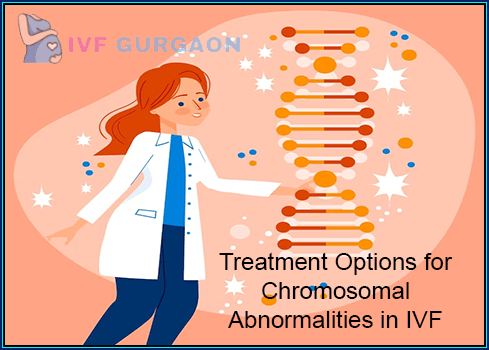
In vitro fertilization (IVF) is an assisted reproductive technology that helps couples struggling with infertility to conceive. However, IVF does not eliminate the risk of chromosomal abnormalities in embryos. In this blog, we will explore the link between IVF and chromosomal abnormalities and the treatment options available.
Chromosomal abnormalities are genetic conditions that occur when there is an error in the number or structure of chromosomes. These abnormalities can lead to birth defects or developmental delays in the baby. The risk of chromosomal abnormalities is higher in pregnancies conceived through IVF than in natural pregnancies.
IVF treatment involves the fertilization of an egg with sperm in a laboratory dish. This process can cause genetic mutations or chromosomal abnormalities in the embryos. Additionally, advanced maternal age and certain medical conditions can increase the risk of chromosomal abnormalities in IVF embryos.

Preimplantation Genetic Testing (PGT): PGT is a procedure used to screen embryos for chromosomal abnormalities before they are transferred to the uterus. The procedure involves the removal of one or a few cells from the embryo, which are then analyzed for genetic abnormalities. Only embryos that are deemed chromosomally normal are selected for transfer.
Egg Donation: For women with a high risk of chromosomal abnormalities, using donor eggs can be a viable option. Donor eggs come from young and healthy women who have undergone thorough medical screening to ensure that they are free of genetic diseases.
Sperm Donation: In some cases, using donor sperm can be a viable option for couples dealing with male factor infertility or a high risk of chromosomal abnormalities in their own sperm.
Adoption: For couples who do not wish to undergo IVF or who cannot conceive naturally, adoption is an option. Adoption can provide a loving home for a child who needs one.
IVF treatment does not eliminate the risk of chromosomal abnormalities in embryos. Treatment options for chromosomal abnormalities in IVF include preimplantation genetic testing (PGT), egg donation, sperm donation, and adoption. If you and your partner are considering IVF, speak to a fertility specialist to understand the risks and benefits associated with the treatment. With the right treatment plan, you can increase your chances of having a healthy baby.